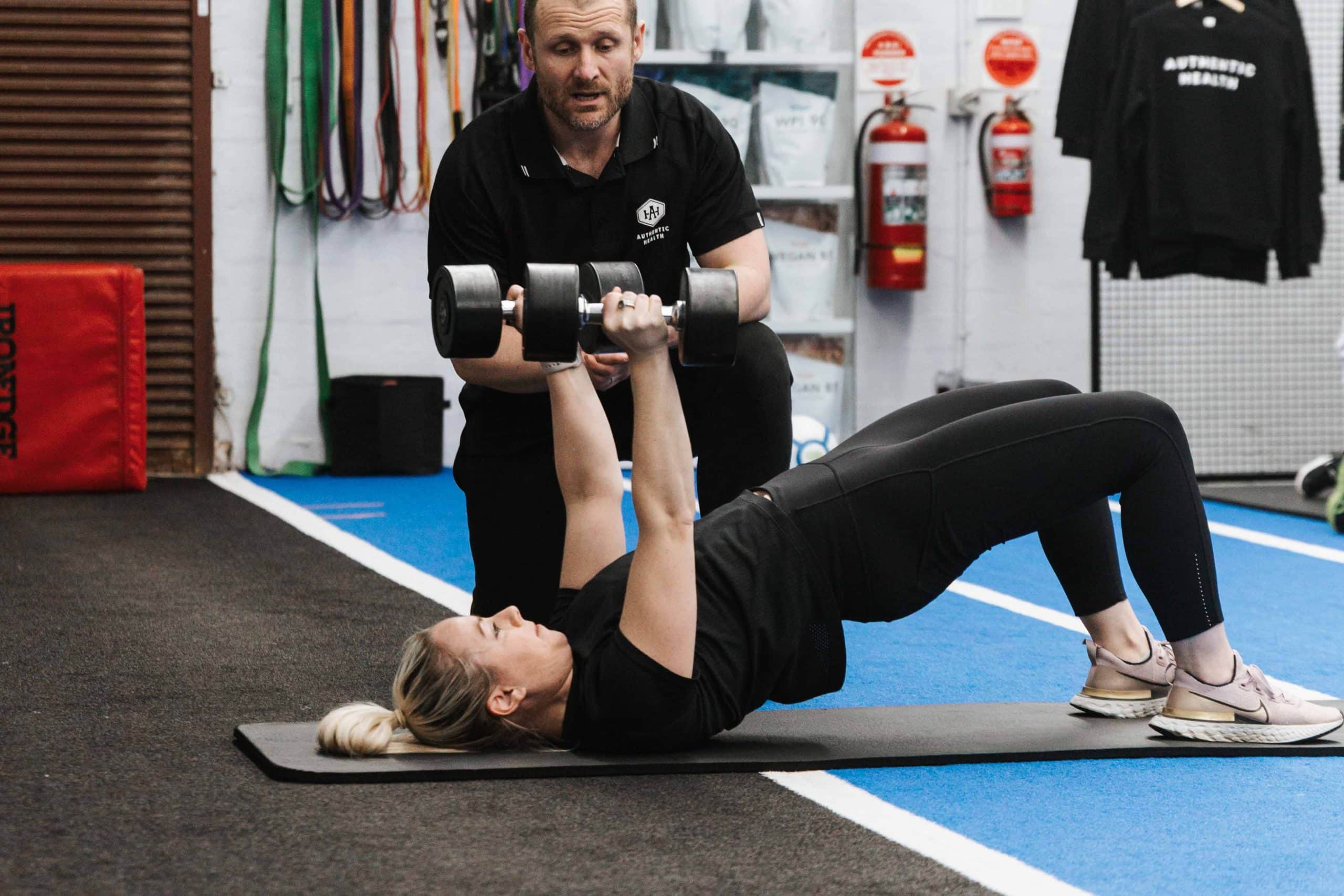
Is your mindset holding you back from reaching your peak performance? As a personal trainer who grew up immersed in sports and gym life, I’ve always loved the physical side of fitness. But as I’ve gotten older, I’ve learned that reaching your peak performance isn’t just about strength or endurance—it’s about mastering your mindset. Your mental outlook is a game-changer for both your well-being and your physical potential. It shapes how you handle challenges, drives your actions, and determines the results you achieve. Cultivating a strong, positive mindset is the secret to unlocking better mental, emotional, and physical health.
The Impact of Mindset
- Beliefs Shape Feelings: Your core beliefs about yourself and the world affect how you feel. For example, if you believe you’re not capable of handling challenges, you’re likely to feel anxious or overwhelmed. Conversely, believing in your ability to overcome obstacles can lead to feelings of confidence and resilience.
- Feelings Influence Actions: Your emotions drive your actions. If you’re feeling positive and optimistic, you’re more likely to take proactive steps towards your goals. On the other hand, negative feelings can lead to inaction, avoidance, and decision making that does not align with your greater goals.
- Actions Produce Results: The actions you take based on your feelings and beliefs directly impact your outcomes. Positive actions lead to positive results, while negative actions often result in unfavourable outcomes.
Techniques for Cultivating a Positive Mindset
- Gratitude Practices: Regularly taking time to acknowledge and appreciate the good in your life can shift your mindset from focusing on what’s missing to recognising what you already have. Try keeping a gratitude journal or make it a family habit to go around the table at dinner, sharing something you’re grateful for from the day. This small practice can transform your perspective and boost feelings of contentment. Take 5 minutes now to write down three things you’re grateful for.
- Reframing Negative Thoughts: Reframing involves changing the way you perceive a situation to alter your emotional response. For instance, instead of thinking, “I failed at this project,” reframe it as, “I learned valuable lessons from this experience.” This shift in perspective can help you approach challenges with a more constructive attitude.
- Affirmations: Incorporate positive affirmations to strengthen empowering beliefs about yourself. Repeating phrases like “I am capable,” “I am resilient,” or “I am worthy of success” can help silence self-doubt and boost your confidence. Write these affirmations on your mirror or stick them on the fridge so they stay front and centre in your daily routine.
Stress Management
Stress is a natural part of life, and even those who seem calm and collected face similar challenges. The key difference lies in how they manage it. How you handle stress can greatly influence your mental and emotional well-being. By using effective stress management techniques, you can maintain balance and build resilience, no matter what life throws your way.
Mindfulness and Meditation
- Mindfulness: Mindfulness isn’t just for monks in distant temples anymore — it’s a powerful tool used by elite athletes and top global companies. It’s all about focusing on the present moment without judgment, helping you recognise and manage stress triggers more effectively. Whether through mindful breathing, body scans, or mindful eating, these practices can reduce stress and improve your mental and physical well-being.
- Visualisation: Visualisation is a powerful technique that can help manage stress by calming the mind and fostering a sense of control. By regularly practicing visualisation, you can enhance emotional regulation, boost self-awareness, and create a sense of relaxation. Start by visualising places you feel most relaxed and calm and progress to empowering situations like leading business meetings, and getting a new job for just a few minutes a day, and as you become more comfortable, gradually increase the duration to maximise its benefits.
Breathing Exercises
Breathing exercises are a simple yet effective way to manage stress. Deep, slow breathing helps activate the body’s relaxation response, reducing feelings of anxiety and tension. Try the following exercises:
- Diaphragmatic Breathing: Inhale deeply through your nose, allowing your abdomen to expand, then exhale slowly through your mouth. Repeat for several minutes to promote relaxation.
- Box Breathing: Inhale through your nose for a count of 4, hold your breath for 4, exhale through your mouth for 4, and hold again for 4 before repeating. This technique is simple, effective, and can help calm the mind and reduce stress. It’s especially useful in high-pressure situations or when you need to regain focus.
Recognising Stress Triggers
Understanding what triggers your stress is essential for effective management. Common triggers include work deadlines, relationship issues, and financial concerns. By identifying your personal stressors, you can develop targeted coping strategies to address them.
Developing Coping Strategies
- Time Management: Organise your tasks and prioritise what needs to be done. Break larger tasks into smaller, manageable steps and use tools like planners or apps to stay on track.
- Healthy Outlets: Engage in activities that help you unwind and recharge. This might include hobbies, exercise, or spending time with loved ones.
- Seeking Support: Don’t hesitate to seek support from friends, family, or a mental health professional. Talking about your stressors can provide relief and offer new perspectives.
Emotional Boundaries
Setting and maintaining emotional boundaries is crucial for protecting your mental health while fostering healthy relationships. Emotional boundaries help you define where you end and others begin, ensuring that you don’t take on the emotional burdens of others or let their actions negatively impact your well-being.
Understanding Emotional Boundaries
- Why Boundaries Matter: Emotional boundaries are essential for preserving your mental and emotional health. They help prevent burnout and ensure that you have the space to address your own needs and feelings without becoming overwhelmed by others’ issues.
- Recognising Overstepping: Be aware of situations where others might be encroaching on your boundaries. This could involve excessive demands on your time, emotional manipulation, or criticism that undermines your self-worth.
Setting Healthy Boundaries
- Communicate Clearly: Express your boundaries openly and assertively. Use “I” statements to communicate your needs and limits, such as “I need some time to myself in the evenings to recharge” or “I can’t take on additional work right now.”
- Be Consistent: Consistency is key to maintaining boundaries. Stick to your limits and avoid feeling pressured to compromise them. It’s important to be firm but respectful in enforcing your boundaries.
- Practice Self-Care: Prioritise self-care to ensure you’re in a strong position to maintain your boundaries. Engage in activities that nourish your mind and body, and seek support when needed.
Maintaining Healthy Relationships
- Mutual Respect: Healthy relationships are built on mutual respect and understanding. Ensure that your boundaries are respected and be mindful of the boundaries of others.
- Boundaries in Conflict: When conflicts arise, address them calmly and respectfully. Reiterate your boundaries and work together to find solutions that honour both parties’ needs.
- Seek Support if Needed: If you find it challenging to set or maintain boundaries, consider seeking support from a therapist or counsellor. They can provide guidance on developing and enforcing boundaries effectively.
Your mindset plays a crucial role in shaping your physical and mental health. By cultivating a positive outlook, practicing gratitude, and managing stress through mindfulness and visualisation techniques, you can significantly enhance your well-being. Remember, mastering your mindset is just as important as physical fitness in achieving long-term success and becoming the best version of yourself for both you and those around you.
Read Previous Self Care Series Blogs
Chapter 1: Understanding the importance of Self-Care
Chapter 2: Self Care Series – Chapter 2: Building a Self-Care Routine That Fits Your Life
Chapter 3: Physical Health, The Foundation of Self-Care



